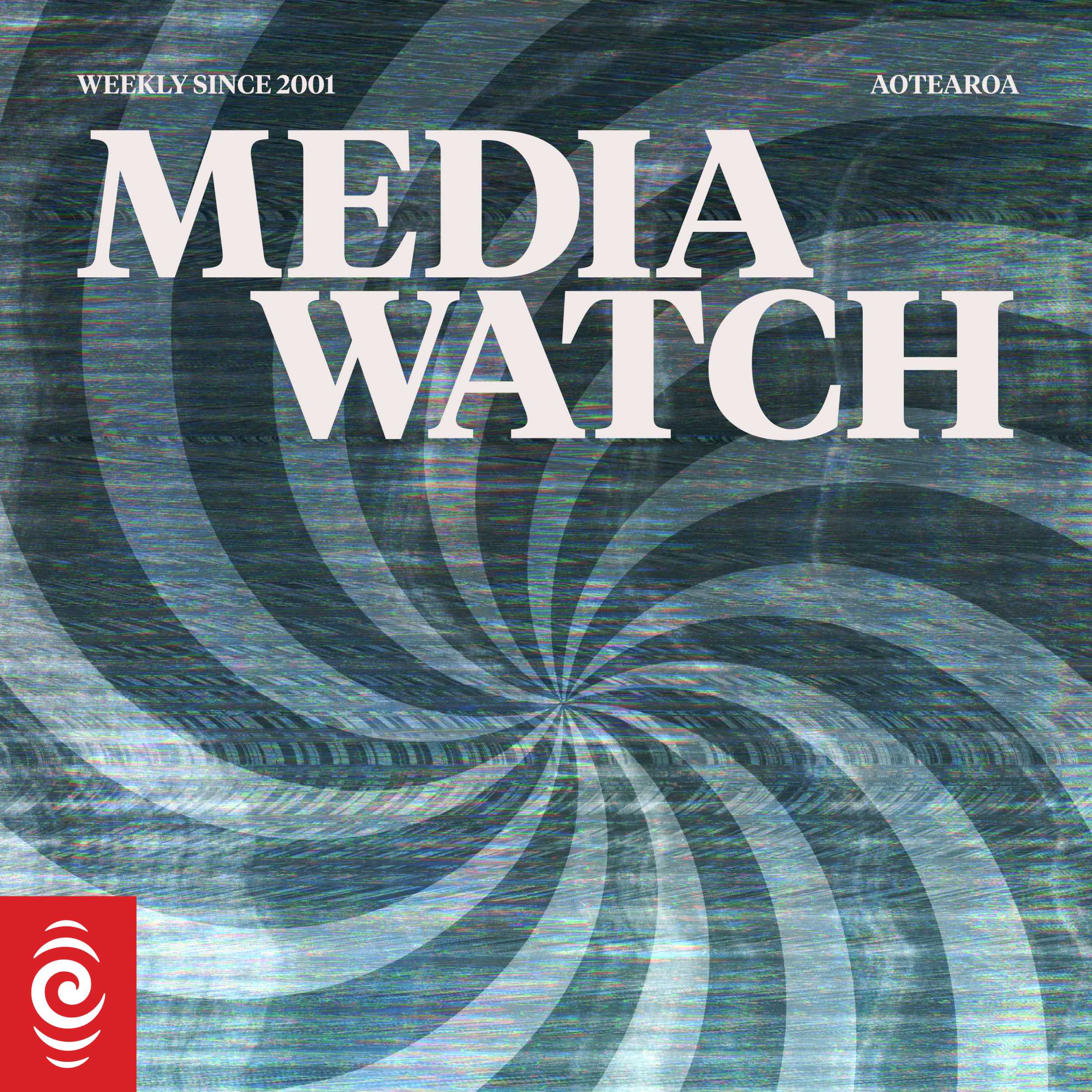

Mediawatch
RNZ
There's never a shortage of opinions on the media but Mediawatch looks at it all in detail for those keen to know more about the news - as well as those who work in media.
Episodes
Mentioned books

May 29, 2024 • 21min
Midweek: New live news & music of the dead
Colin Peacock talks to Emile Donovan about Duncan Garner's new live morning show - and an old name for a new 6pm TV news show. Also - a couple of awkward moments at this year's national journalism awards and an awkward confrontation between a rugby coach and a reporter; an outlet devoted to the music of the dead - and who gets struck by lightning?Go to this episode on rnz.co.nz for more details

May 25, 2024 • 42min
Mediawatch for 26 May 2024
New Zealand's big awards for journalists were given out this week at a time when many are losing their jobs. Also - Mediawatch talks to an editor who has secured the future of two important medical magazines in tight times - and looks at coverage of the A-League scandal that's posed some awkward questions with reputations at stake.
Go to this episode on rnz.co.nz for more details

May 22, 2024 • 18min
Midweek: Justice for Herbertville
Hayden Donnell and Emile Donovan apologise poetically to a small Tararua seaside settlement inadvertently insulted by RNZ online. Also: Stuff launches crime podcasts you pay for - while another new podcast hit a hitch this week; ScarJo's lawyers 1, Chat GPT nil. Go to this episode on rnz.co.nz for more details

May 18, 2024 • 37min
Mediawatch for 19 May 2024
A long-running plan to reform the oversight of our media has come to a sudden halt; how public toilets suddenly became political this week.Mediawatch this week looks at how a long-running plan to reform the oversight of our media has come to a sudden stop - and what the consequences might be. Also: why public toilets suddenly became political this week. Go to this episode on rnz.co.nz for more details

May 15, 2024 • 26min
Midweek: TVNZ's cuts hit the screen
Colin Peacock talks to Emile Donovan about Fair Go and Sunday coming to a sad but dignified end this week at TVNZ, as the broadcaster itself copped criticism for its handling of the redundancies and closures. Also: a complaint against a newspaper's controversial coverage of roading and new offerings from RNZ. Go to this episode on rnz.co.nz for more details

May 11, 2024 • 36min
Mediawatch for 12 May 2024
Pre-budget teasers increase exposure - and scrutiny; Green MP under pressure over conduct; bid to backstop local news; Gaza coverage attract complaints - and prizes.Mediawatch this week looks at how pre-Budget announcements from the government are coming thick and fast - and making plenty of headlines. Also: a plan to save a local newspaper which might just help others stay alive - and an under-fire MP was pursued all the way to the Chatham Islands. Go to this episode on rnz.co.nz for more details

May 8, 2024 • 21min
Midweek: StuffHub takes shape
Hayden Donnell talks to Emile Donovan about new hires for the upcoming Stuff-Newshub 6pm bulletin. Also - TVNZ and the journalists' union face off over job cuts while the outgoing boss of TV channel Three took a swipe at its state-owned rival; and a fringe online radio station's set to return after raising money from its listeners. Go to this episode on rnz.co.nz for more details

May 4, 2024 • 45min
Mediawatch for 5 May 2024
One opinion poll prompts intense political pushback; new report urges sweeping changes to media, law and funding - and fast; Wairoa Star closes after more than a century in print.
One opinion poll prompts intense political pushback; new report urges sweeping changes to media, law and funding - and fast; Wairoa Star closes after more than a century in print. Go to this episode on rnz.co.nz for more details

May 1, 2024 • 22min
Midweek: Polls, papers and a post-match snafu
Colin Peacock talks to Emile Donovan about an MP taken to task about his knowledge of the arts - and a TV producer taking on a funding agency in court. Also: a new political poll causes ructions; a century-old newspaper folds - and a spurned sportsman's great save on camera.Go to this episode on rnz.co.nz for more details

Apr 27, 2024 • 37min
Mediawatch for 28 April 2024
New media minister rolls in after PM's surprise reshuffle; TV news and current affairs on the way down here, but highly competitive across the Tasman.Mediawatch this week looks at the sudden appointment of a new Minister of Media and Communications - and what went wrong for the outgoing one. Also - while our TV broadcasters are cutting back their news to the bare minimum, news is still lucrative for Australian TV networks - and it's so competitive they often end up in court. Go to this episode on rnz.co.nz for more details


